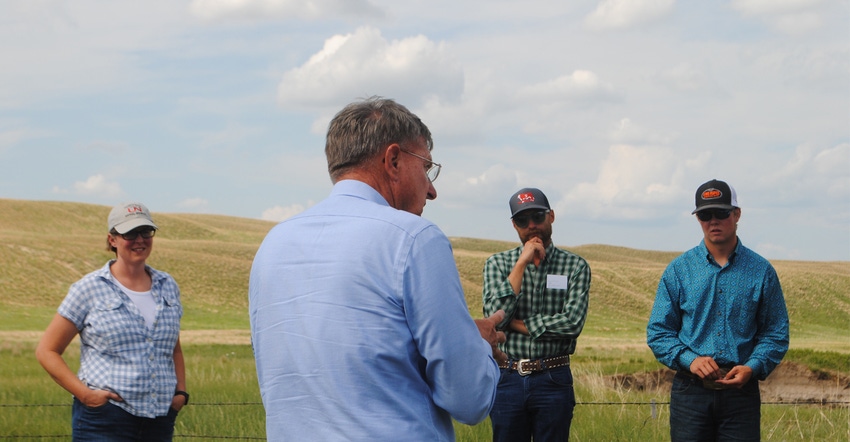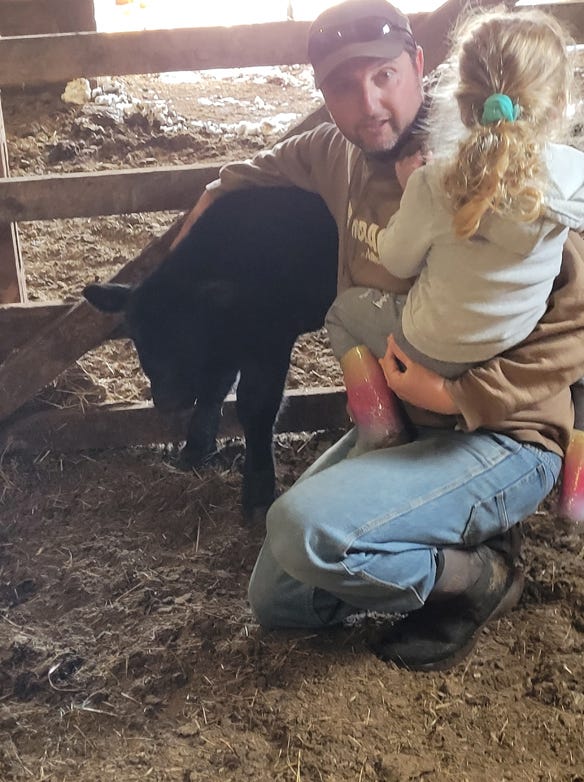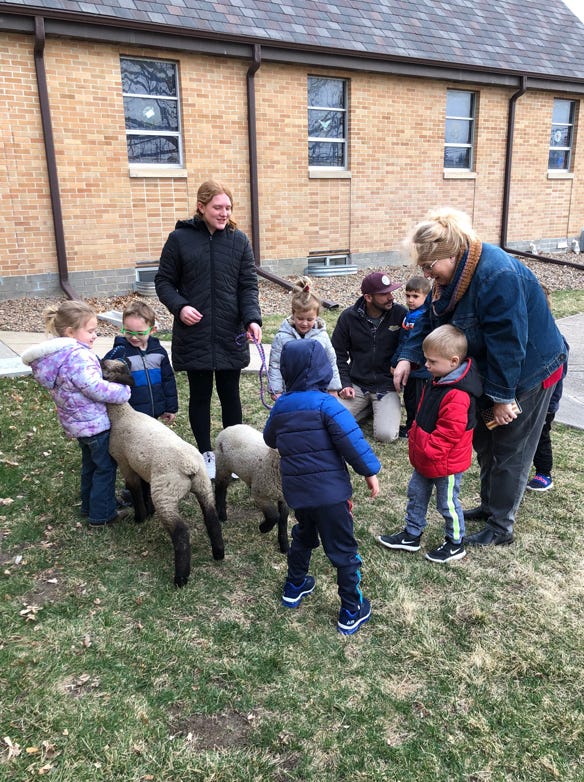May 27, 2022

The heart of our state is in its local connections. Often, these connections begin with conversations among trusted neighbors and friends that are in tune to the needs of the communities in which they live.
Nebraska Extension acts as a trusted educational line for every Nebraskan, connecting people wherever they are in the state and bringing the university’s expertise and research directly to the community.
Each of Nebraska’s 93 counties consists of an advisory board that oversees the local Extension program development and delivery. Each of these board members are asked to be a connection between their community and the university.
Serving on the board
Ryan Ridenour, a fifth-generation Nebraska Sandhills rancher, works with his brother on their grandfather’s and parents’ ranch in Cherry County. Like many Nebraska ranchers, Ridenour puts in long hours each week, yet he understands the importance of serving on the local Nebraska Extension board.
“I live in Mullen, 25 miles from the ranch, and commute back and forth daily,” Ridenour says. “My local county Extension board members can help spread the word of the benefits of Nebraska Extension and all that it offers. They are also in a position to verify needs of the local communities and help Extension educators develop programming focused on these needs.”

Ryan Ridenour poses with his daughter and a new calf on the family’s fifth-generation ranch in Cherry County. He serves as NACEB president for 2022.
In addition to having served on the Central Sandhills Extension Board for six years, Ridenour is a Nebraska Association of County Extension Boards director, serving on the executive committee, and now NACEB’s president for 2022.
“County Extension board members are representatives of the community and help oversee the local Extension office budget and spending practices, programming ideas and give feedback — all crucial parts of the board’s responsibilities,” he says.
All in the family
You could say Carmen Lechtenberg of Holt County quite literally grew up in Extension. Lechtenberg’s mother was a Nebraska Extension educator for 28 years, and Lechtenberg herself is a former Extension educator for Kansas State University for 14 years.
After a move to north-central Nebraska, Lechtenberg rolled up her sleeves to serve Nebraska Extension in the areas of Holt County 4-H Council, Holt County Extension Board, and as the current NACEB executive board secretary. Like Ridenour, Lechtenberg understands the value Extension board members have in communities.

Carmen Lechtenberg’s daughters, Claire (left with lamb) and Danica (center), showcase a set of twin lambs to a preschool class.
“In conversations with neighbors and friends, we share what is going on through Extension,” she says. “I have made the suggestion numerous times in discussions to contact the local office when an issue or question arises that I know Extension has expertise to help. I am always surprised when the individual or group I am talking with hasn’t thought to reach out to the local Extension office for help.
“Extension brings unbiased, research-based information and technology instruction to the local farmers and ranchers,” Lechtenberg adds. “In our fast-paced world, change seems to occur much faster now than a few decades ago. Extension is a resource farmers and ranchers can trust to bring the latest information that is based on research. They can gain training on how new technologies or practices can be implemented into their operations.
“They can also bring issues they are facing in their operation to get answers on how to correct the situation, be it as simple as identifying a weed in their pasture or identifying spray drift on a crop to help develop environmental plans for a feedlot that is within a mile of a stream or river. Extension offers information in eight core program areas, most of which can be tied back to the local farm and ranch in one way or another.”
All about priorities
Nebraska Extension’s eight priority focus areas include 4-H youth development, beef systems, community environment, agricultural economics, food nutrition and health, early childhood, rural prosperity, and water and integrated cropping systems.
Ridenour knows the effect these key areas have on farmers and ranchers firsthand.
“Living in an area of mainly cow-calf and stocker operations, the beef systems priority focus area of Nebraska Extension is a great resource for educational and research information,” he says. “From drought management, farm-ranch transition workshops, Beef Quality Assurance certification training, farmland-pasture lease workshops to beef webinars, there is so much useful information available to ranchers and farmers to gain knowledge and grow their operations in a better, more efficient way. Doing it just because that is the way Grandpa or Dad did it is not always a good reason.”
Serving Extension helps build connections for the future of Nebraska. Extension Board members, such as Ridenour and Lechtenberg, give their time to the Extension programming that helped them as kids, and to a new generation of Nebraskans.
Ridenour says, “Growing up I was involved in 4-H through Nebraska Extension, and I believe the activities and programs I was involved in made me a better person today.”
For more information on how to serve your local Nebraska Extension Board, visit extension.unl.edu.
Wortmann writes from Crofton.
You May Also Like




